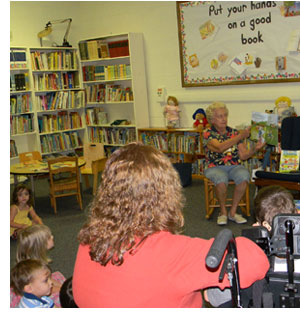2 priorities from White House Summit on Elementary and Secondary Education
by Katy
Stakes are really high for kids with disabilities (especially those under age 5) and the good news is that there are some significant happenings that could result in more opportunities for children with disabilities. The bad news? There are just as many happenings that could limit choices for these kids.
But let’s start with the great news first. Last month, I was invited to the White House Summit on Early Education. It’s always an honor to be invited to the White House, and to be able to participate and advance the specific needs and opportunities for kids with disabilities is really cool. I was the only disability advocate at this event, and the reason Easter Seals was invited is because of our deep roots and commitment to young children with disabilities and their families, as well as our strong partnerships with corporations like CVS Caremark and health and media channels like Parents Magazine.
Easter Seals has long argued that including kids with disabilities in early education programs increases the quality of these programs. If a program can help a child with a disability learn and grow, it can help a child with typical development learn and grow, too. That has certainly been my personal experience with my own daughter, now 15, who spent her early years in Easter Seals early education programs. Two very important priorities came out of the White House summit:
- Expanding the availability of early education programs, and
- leveraging public funds in the Elementary and Secondary Education Act (ESEA).
ESEA is the law that finances education services to low income and vulnerable children, and every state in the country uses these funds to meet its obligations to children.
Now, the not-so-great news. The debate in Congress is pretty polarizing on education policy, especially on policy for students who have disabilities. Last week, Senate leaders published a draft bill on the Elementary and Secondary Education Act that does not include new options for early education. We will be working with Congress — both the House and Senate — to encourage them to elevate early education services in this bill.
One of the most compelling arguments from the White House Summit was about the economy. Research demonstrates that expanding early learning opportunities would provide benefits to society of roughly $8.60 for every $1 spent, about half of which comes from increased earnings for children when they grow up.
Simply put, its penny-wise and pound foolish to not expand early education options. Knowing that the first 5 years of life lay the foundation for a child’s success, Easter Seals strongly supports any effort to increase quality early education offerings.







